Kia Stonic vs Nissan Qashqai - Differences and prices compared
Compare performance (115 HP vs 205 HP), boot space and price (20100 £ vs 29600 £ ) at a glance. Find out which car is the better choice for you – Kia Stonic or Nissan Qashqai?
Costs and Efficiency:
Looking at overall running costs, both models reveal some interesting differences in everyday economy.
Kia Stonic has a convincingly advantage in terms of price – it starts at 20100 £ , while the Nissan Qashqai costs 29600 £ . That’s a price difference of around 9471 £.
Fuel consumption also shows a difference: Nissan Qashqai manages with 4.50 L and is therefore evident more efficient than the Kia Stonic with 5.60 L. The difference is about 1.10 L per 100 km.
Engine and Performance:
Under the bonnet, it becomes clear which model is tuned for sportiness and which one takes the lead when you hit the accelerator.
When it comes to engine power, the Nissan Qashqai has a decisively edge – offering 205 HP compared to 115 HP. That’s roughly 90 HP more horsepower.
In acceleration from 0 to 100 km/h, the Nissan Qashqai is clearly quicker – completing the sprint in 7.60 s, while the Kia Stonic takes 10.70 s. That’s about 3.10 s faster.
In terms of top speed, the Nissan Qashqai performs a bit better – reaching 206 km/h, while the Kia Stonic tops out at 182 km/h. The difference is around 24 km/h.
There’s also a difference in torque: Nissan Qashqai pulls noticeable stronger with 330 Nm compared to 200 Nm. That’s about 130 Nm difference.
Space and Everyday Use:
Whether family car or daily driver – which one offers more room, flexibility and comfort?
Both vehicles offer seating for 5 people.
In curb weight, Kia Stonic is a bit lighter – 1205 kg compared to 1420 kg. The difference is around 215 kg.
In terms of boot space, the Nissan Qashqai offers clearly perceptible more room – 504 L compared to 352 L. That’s a difference of about 152 L.
In maximum load capacity, the Nissan Qashqai performs noticeable better – up to 1447 L, which is about 292 L more than the Kia Stonic.
When it comes to payload, Nissan Qashqai somewhat takes the win – 520 kg compared to 445 kg. That’s a difference of about 75 kg.
Who wins the race in the data check?
The Nissan Qashqai holds a decisive overall lead in the objective data comparison.
This result only shows which model scores more points on paper – not which of the two cars feels right for you.
Costs and Consumption
View detailed analysis
Engine and Performance
View detailed analysis
Dimensions and Body
View detailed analysis

Nissan Qashqai
Kia Stonic
The Kia Stonic is a sprightly compact crossover that mixes city-friendly agility with a cheeky, modern design — perfect for buyers who want style without sacrificing sense. Inside it serves up clever practicality and a bright, well-equipped cabin, making everyday driving feel a bit more fun than it has any right to be.
details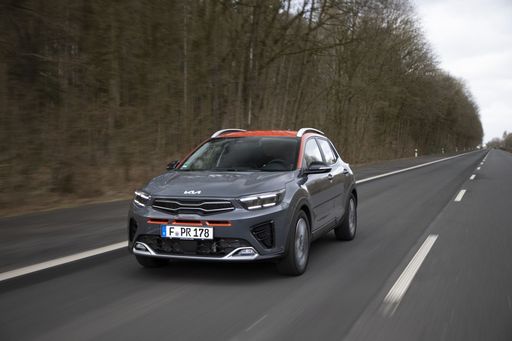
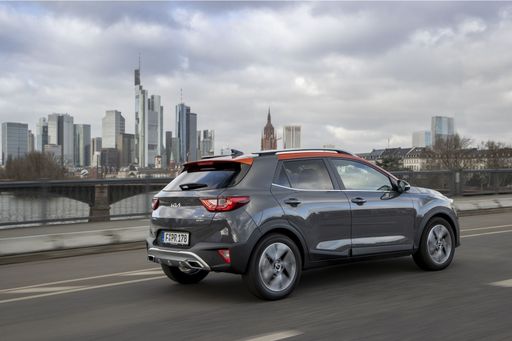
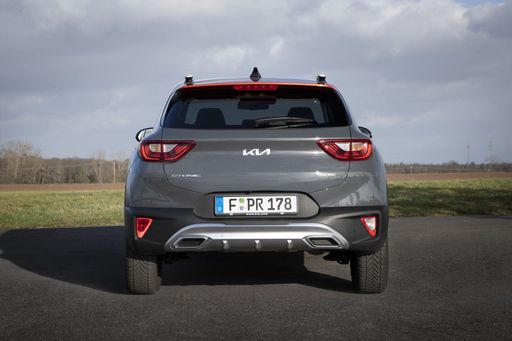
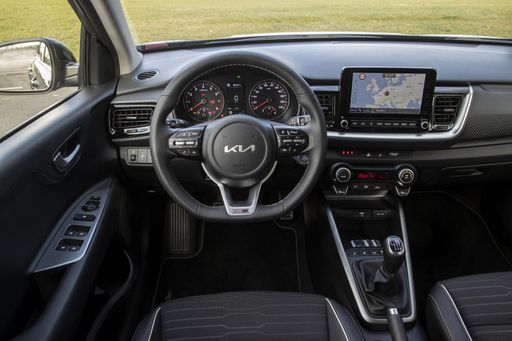
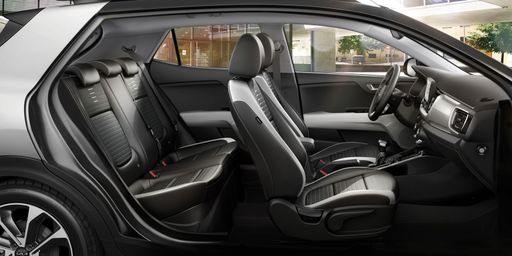
Nissan Qashqai
The Nissan Qashqai blends practical, family-friendly packaging with SUV styling that refuses to shout, making it a sensible and dependable choice for everyday life. It’s comfortable to live with, economical on the road, and neatly equipped enough to feel modern without ever feeling precious — perfect if you want crossover versatility without the drama.
details

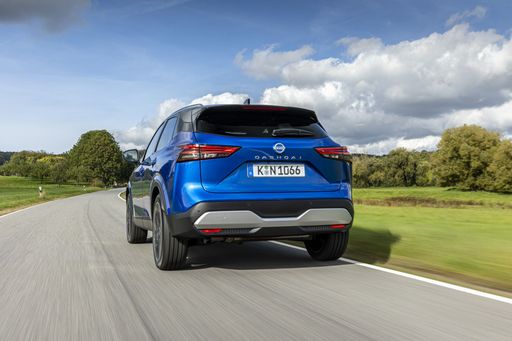


Costs and Consumption |
|
|---|---|
|
Price
20100 - 26600 £
|
Price
29600 - 39900 £
|
|
Consumption L/100km
5.6 - 5.9 L
|
Consumption L/100km
4.5 - 6.8 L
|
|
Consumption kWh/100km
-
|
Consumption kWh/100km
-
|
|
Electric Range
-
|
Electric Range
-
|
|
Battery Capacity
-
|
Battery Capacity
-
|
|
co2
127 - 133 g/km
|
co2
102 - 154 g/km
|
|
Fuel tank capacity
45 L
|
Fuel tank capacity
55 L
|
Dimensions and Body |
|
|---|---|
|
Body Type
SUV
|
Body Type
SUV
|
|
Seats
5
|
Seats
5
|
|
Doors
5
|
Doors
5
|
|
Curb weight
1205 - 1270 kg
|
Curb weight
1420 - 1665 kg
|
|
Trunk capacity
352 L
|
Trunk capacity
479 - 504 L
|
|
Length
4165 mm
|
Length
4425 mm
|
|
Width
1760 mm
|
Width
1835 mm
|
|
Height
1520 mm
|
Height
1625 mm
|
|
Max trunk capacity
1155 L
|
Max trunk capacity
1422 - 1447 L
|
|
Payload
440 - 445 kg
|
Payload
466 - 520 kg
|
Engine and Performance |
|
|---|---|
|
Engine Type
Petrol, Petrol MHEV
|
Engine Type
Petrol MHEV, Full Hybrid
|
|
Transmission
Manuel, Automatic
|
Transmission
Manuel, Automatic
|
|
Transmission Detail
Manual Gearbox, Dual-Clutch Automatic
|
Transmission Detail
Manual Gearbox, CVT, Reduction Gearbox
|
|
Drive Type
Front-Wheel Drive
|
Drive Type
Front-Wheel Drive, All-Wheel Drive
|
|
Power HP
100 - 115 HP
|
Power HP
140 - 205 HP
|
|
Acceleration 0-100km/h
10.7 - 12.1 s
|
Acceleration 0-100km/h
7.6 - 10.2 s
|
|
Max Speed
179 - 182 km/h
|
Max Speed
170 - 206 km/h
|
|
Torque
172 - 200 Nm
|
Torque
240 - 330 Nm
|
|
Number of Cylinders
3
|
Number of Cylinders
3 - 4
|
|
Power kW
74 - 85 kW
|
Power kW
103 - 151 kW
|
|
Engine capacity
998 cm3
|
Engine capacity
1332 - 1498 cm3
|
General |
|
|---|---|
|
Model Year
2025
|
Model Year
2025
|
|
CO2 Efficiency Class
D
|
CO2 Efficiency Class
E, C
|
|
Brand
Kia
|
Brand
Nissan
|
Is the Kia Stonic offered with different drivetrains?
The Kia Stonic is offered with Front-Wheel Drive.




